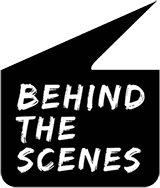OK, so, full disclosure, it wasn’t a one-to-one conversation on leadership lessons.
But given it was just me, sitting in front of my screen, with Simon Sinek sharing his leadership lessons with the audience, it was easy to forget the thousands of other people from across the globe that had also joined the conversation.
Regardless, as Sinek answered our questions one after the other, I took copious notes over the two-day event, hosted by The Growth Faculty. I’ve distilled these into 18 bite-sized nuggets of leadership lessons below.
In no particular order:
- You can tell a lot about a leader’s priorities by the order in which they say things.
- Leaders don’t get taught how to lead – how to listen, how to be empathetic, how to communicate effectively, how to have difficult conversations, how to give and receive feedback – so it’s important to get help along the way. [Find out how I can help you with all of these!]
- The most dangerous leadership trait is to think you can do it alone. You’ll inevitably suffer stress, loneliness, hardships, make bad decisions, and more. To think you can do it alone is naive. Leadership requires help, support and love from others.
- Leaders need to create a ‘Circle of Safety’. This is what being on a trusting team looks like. It’s where we feel safe to raise our hand and say ‘I don’t know’, ‘I made a mistake’, ‘I’m scared’, or ‘I need help’, without any fear of retribution and knowing someone on the team will be there to support us.
- A ‘leader’ does not necessarily refer to the person in charge. Ideally, it is but, if not, we can all choose to be the leader we wish we had.
- If leaders project forced confidence, it drives a wedge between them and employees. If leaders project humility and vulnerability, it bonds and unites people.
- Growth itself is not a purpose, cause or contribution, it’s merely a bi-product of your contribution.
- When it comes to having a difficult conversation don’t be afraid to express concern, nerves or fear about having that conversation. For example, you might say to your team “We need to have a difficult conversation. I’m afraid to have it. It may trigger emotions. I’m worried that I might not do a good job and the outcome might not be what we need, but it’s worth the risk, even if it’s imperfect. I hope you’ll bear with me as I fumble through it because as a team, we need to have it”.
- People want to feel seen and heard. Not just hearing the words that are spoken, proper active listening. You need to attempt to understand the meaning behind the words. Listening is a learnable, practical skill. It takes effort. If you’ve been listening properly you should be exhausted!
- A ‘people’ problem is never solved by a process or system. A human problem needs a human solution.
- Your personal brand is built on how you interact with EVERYONE, ALL OF THE TIME, not just when the spotlight is on you, or you’re in front of the decision-makers.
- I hate the term ‘soft’ skills. There’s nothing soft about them. They are human skills.
- Delegation empowers others and communicates to people that you trust them.
- Learning how to ask good questions – and how to listen to the answers – helps with clarity, understanding, negotiation, and more.”
- Covid has taught – or reminded – leaders that people matter! Connection matters! Humanity matters! These are the fundamentals of leadership – always have been, always will be.
- When it comes to employee engagement, people will come to the party at different times. If people are coming in and doing their job, but don’t want to ‘get on the bus’, but they’re not getting in the way, that’s OK. Don’t worry about them. Instead, focus on the employees who are engaged. Take the time to say thank you to them.
- Culture is a belief set and a value set. Subcultures will exist (e.g. Sydney and Melbourne) but under a universal umbrella culture (e.g Australia – Sydney subculture wouldn’t work in France).
- Regaining the trust of your team is like any personal relationship – painting over it won’t help. Don’t say “Sorry, but…”. You need to own it. You need to take responsibility for your part and understand the impact you have had.
Which leadership lesson will you take away with you?
